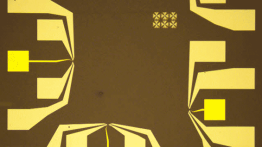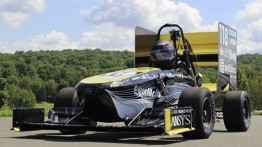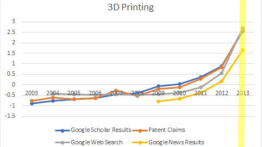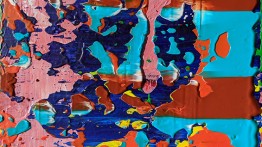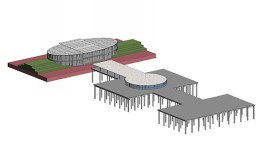Senior Snapshots: Engineering 2020
POSTED ON: May 18, 2020
Aziza Almanakly, the electrical engineering senior, checked in first, from her family home in Rockaway, New Jersey, where she grew up. She had to find a quiet room to escape her brother’s noisemaking. Connor Lowry, the mechanical engineering senior, also checked in from New Jersey, in Holmdel, where he grew up. QiTong Han, the civil engineering senior, logged on from her childhood home in Bayside, Queens. Michael Lange, the chemical engineering senior, popped up on a couch in his twin brother’s apartment in Washington D.C., though he too grew up in New Jersey: Scotch Plains. Carena Toy, the general engineering senior, however, had them all beat. “I grew up in Seattle and Dallas,” she said. “But right now I'm in Hawaii. I came here for spring break to visit my grandma. And now I'm sort of stuck here.”
Like everything else about this year the annual engineering senior snapshot, where we talk with members of the graduating class, had to be done differently than in the past. In the spirit of the times, it was arranged for all of them to meet at once, online, for a group conversation. They politely took turns as they talked about how they got interested in engineering, found Cooper Union, and what project occupied them most during their senior year. Then, as the conversation turned to online learning and the feelings about how their last year at Cooper Union got upended, they all unmuted their microphones.
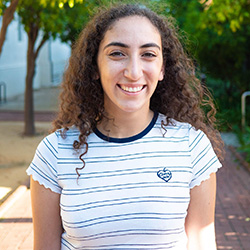 Aziza Almanakly’s father, a civil engineer working in Manhattan, was the one who first told her about Cooper Union. She was already in a magnet program for math and science in high school. She had a choice of engineering schools, but attending a women-in-engineering night at the Albert Nerken School of Engineering sold her. “I met a lot of the current students and it just seemed like a very welcoming community. I hadn't seen that at the other schools that I was looking into and so it was very easy choice for me.” The title of her senior year EE project, “Development of Al-InAs Transistors for Scalable Quantum Computing,” is a “mouthful” she admits. But she deftly explains it for novices. In collaboration with a quantum materials and devices lab at New York University, she and other members of her group were busy designing and fabricating transistors that, in extreme sub-zero temperatures, become quantum bits, or qubits. Unlike normal bits that are binary – one or zero – qubits can be both at the same time. “With these you can have this whole new landscape of quantum algorithms and a new type of computer. I'm really interested in these qubits and how they work and how can we can build them. We got it to the point right before spring break where we fabricated our first chip, and then all the labs shut down and we never got to test them. Instead, we're still running some simulations and trying to write our paper up nicely. That way, if there's a group in the year below that's interested in continuing this, they can. It's unfortunate that it ended this way, but we still learned so much from it.” Next for Aziza: starting her PhD in Electrical Engineering and Computer Science at MIT.
Aziza Almanakly’s father, a civil engineer working in Manhattan, was the one who first told her about Cooper Union. She was already in a magnet program for math and science in high school. She had a choice of engineering schools, but attending a women-in-engineering night at the Albert Nerken School of Engineering sold her. “I met a lot of the current students and it just seemed like a very welcoming community. I hadn't seen that at the other schools that I was looking into and so it was very easy choice for me.” The title of her senior year EE project, “Development of Al-InAs Transistors for Scalable Quantum Computing,” is a “mouthful” she admits. But she deftly explains it for novices. In collaboration with a quantum materials and devices lab at New York University, she and other members of her group were busy designing and fabricating transistors that, in extreme sub-zero temperatures, become quantum bits, or qubits. Unlike normal bits that are binary – one or zero – qubits can be both at the same time. “With these you can have this whole new landscape of quantum algorithms and a new type of computer. I'm really interested in these qubits and how they work and how can we can build them. We got it to the point right before spring break where we fabricated our first chip, and then all the labs shut down and we never got to test them. Instead, we're still running some simulations and trying to write our paper up nicely. That way, if there's a group in the year below that's interested in continuing this, they can. It's unfortunate that it ended this way, but we still learned so much from it.” Next for Aziza: starting her PhD in Electrical Engineering and Computer Science at MIT.
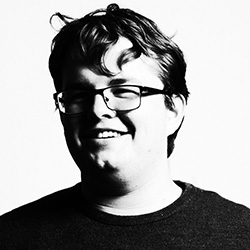 Connor Lowry likes working with his hands, “swinging wrenches,” as he says, and was always math and science oriented. The intimacy of Cooper Union appealed to him, as did the Formula SAE team because, unlike other schools with such teams, it includes freshman and sophomores. After four years that included many “sleepless nights” his senior project involved finding ways to further cut the weight of the car. Not easy when the design has been iterated on for about 10 years. “Because we'd identified aluminum components as the main blocker for our weight savings goal we are looking at a material called carbon fiber bulk molding compound to replace it. It’s like a carbon fiber-injected plastic or a glass-filled nylon, but the composite-to-filler ratio favors the carbon side.” But it cost around $300 a pound. So, being students of mechanical engineering, they found ways to make their own alternative for about $30 a pound and tested it in their own custom testing rigs, saving the school about $35,000. And they shaved five pounds off the weight of the car. The project has been awarded the "Outstanding Senior Project in Mechanical Engineering" commencement prize. After graduation he’ll become a New Product Development Engineer for Watts Water Technologies in their heating and hot water sector.
Connor Lowry likes working with his hands, “swinging wrenches,” as he says, and was always math and science oriented. The intimacy of Cooper Union appealed to him, as did the Formula SAE team because, unlike other schools with such teams, it includes freshman and sophomores. After four years that included many “sleepless nights” his senior project involved finding ways to further cut the weight of the car. Not easy when the design has been iterated on for about 10 years. “Because we'd identified aluminum components as the main blocker for our weight savings goal we are looking at a material called carbon fiber bulk molding compound to replace it. It’s like a carbon fiber-injected plastic or a glass-filled nylon, but the composite-to-filler ratio favors the carbon side.” But it cost around $300 a pound. So, being students of mechanical engineering, they found ways to make their own alternative for about $30 a pound and tested it in their own custom testing rigs, saving the school about $35,000. And they shaved five pounds off the weight of the car. The project has been awarded the "Outstanding Senior Project in Mechanical Engineering" commencement prize. After graduation he’ll become a New Product Development Engineer for Watts Water Technologies in their heating and hot water sector.
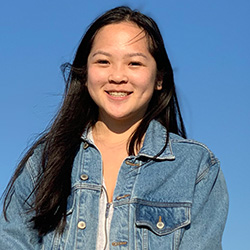 Carena Toy, in spite of growing up far west of the Mississippi, heard about Cooper Union because her cousin happened to be looking at attending The Irwin S. Chanin School of Architecture. Although students of the general engineering program are not required to have a senior project, she cites her independent studies as significant parts of her final year. One of them, with Dean Shoop, examines the 2013 data related to 3D printing to see if there is a data-driven way to identify emerging technologies. “Right now you often see lists of ‘the top ten technologies in the next three to five years’ decided by a bunch of smart people sitting in a room. It's a great value to be able to use people who are really well qualified in their field, but another way it might be done is by using actual data to create predictive models.” A senior-year independent study course on patent law with Professor Alan Wolf, has also been key for her. “When I came into Cooper I wanted to go to law school afterwards and then at some point I strayed away from that idea.” Now she thinks she’ll apply in a couple of years. “I do think one thing about Cooper that's really great is that the education is very moldable,” she says. “You can really make it what you want it to be, whether it's through independent studies or different projects. Once you figure out what direction you want to go in, Cooper gives you the flexibility to go down it, and I think that's one thing I didn't really expect, but I'm really grateful .”
Carena Toy, in spite of growing up far west of the Mississippi, heard about Cooper Union because her cousin happened to be looking at attending The Irwin S. Chanin School of Architecture. Although students of the general engineering program are not required to have a senior project, she cites her independent studies as significant parts of her final year. One of them, with Dean Shoop, examines the 2013 data related to 3D printing to see if there is a data-driven way to identify emerging technologies. “Right now you often see lists of ‘the top ten technologies in the next three to five years’ decided by a bunch of smart people sitting in a room. It's a great value to be able to use people who are really well qualified in their field, but another way it might be done is by using actual data to create predictive models.” A senior-year independent study course on patent law with Professor Alan Wolf, has also been key for her. “When I came into Cooper I wanted to go to law school afterwards and then at some point I strayed away from that idea.” Now she thinks she’ll apply in a couple of years. “I do think one thing about Cooper that's really great is that the education is very moldable,” she says. “You can really make it what you want it to be, whether it's through independent studies or different projects. Once you figure out what direction you want to go in, Cooper gives you the flexibility to go down it, and I think that's one thing I didn't really expect, but I'm really grateful .”
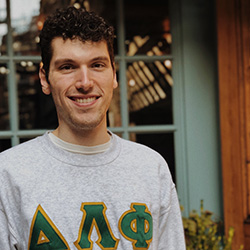 While many freshmen in the chemical engineering program may have only a vague idea what it is about, Michael Lange was not one of them. "When I was in high school I was very interested in chemistry, biology, applied science and industrial processes.” A family friend correctly identified the passion as belonging to chemical engineering. “By the time I graduated high school I knew that that was definitely going to be the right path for me.” A different family friend pointed him towards Cooper Union. His group “capstone” project researched designing a processing plant that would turn a certain Asian grass into carbon monoxide and hydrogen, and from there into a carbon-neutral liquid biocrude useable as jet fuel. “We have to do a full technical analysis where we demonstrate, if you wanted to build this process, here's what you would need and here's what you would do. For example, what equipment do you need, and how hot or cold are all your different streams going to be and what are all your different materials? How much of everything do you need? What could you sell it for? Where would you put the plant so that you reduce your costs? You have to give a go or no-go type of analysis. We decided It can be done but we don't think it is economically feasible to do so, at least with our design.” This last year he has also stretched his interests by taking a two-semester sophomore-level painting class at the School of Art. After graduating he will be working at Regeneron Pharmaceuticals, in Rensselaer, NY, studying cell culture processes.
While many freshmen in the chemical engineering program may have only a vague idea what it is about, Michael Lange was not one of them. "When I was in high school I was very interested in chemistry, biology, applied science and industrial processes.” A family friend correctly identified the passion as belonging to chemical engineering. “By the time I graduated high school I knew that that was definitely going to be the right path for me.” A different family friend pointed him towards Cooper Union. His group “capstone” project researched designing a processing plant that would turn a certain Asian grass into carbon monoxide and hydrogen, and from there into a carbon-neutral liquid biocrude useable as jet fuel. “We have to do a full technical analysis where we demonstrate, if you wanted to build this process, here's what you would need and here's what you would do. For example, what equipment do you need, and how hot or cold are all your different streams going to be and what are all your different materials? How much of everything do you need? What could you sell it for? Where would you put the plant so that you reduce your costs? You have to give a go or no-go type of analysis. We decided It can be done but we don't think it is economically feasible to do so, at least with our design.” This last year he has also stretched his interests by taking a two-semester sophomore-level painting class at the School of Art. After graduating he will be working at Regeneron Pharmaceuticals, in Rensselaer, NY, studying cell culture processes.
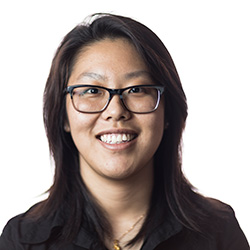 Born in China, QiTong Han’s interest in civil engineering began when she had to translate documents for her father, who did sub-contracting work in New York City. Later, at Queens High School for Science at York College, a teacher suggested Cooper Union as a smart choice. Like the chem-e seniors, the civ-es form groups to develop the proposal of a site-specific, needed building. Her group has been working on designing a waterfront park as an expansion of the Wall Street Ferry Terminal Pier 11. “All the decision-making was done in the first semester. Right now, we're just doing online analysis. But there are still some problems because not all of us have the software we need on our personal laptop. So, our group had to coordinate to share a screen and then make some adjustments to our design.” In a different class she was testing the use of recycled plastic as the course aggregate in concrete, but the testing labs are now inaccessible, leaving much of the data disconnected. Still, looking back over four years she says, “I would not change anything about my experience, to be honest. I have a become more talkative than I was in high school which is good. Because of Cooper I joined a lot of clubs like the ASCE, SEAoNY, and steel bridge team where I started to take on some leadership too.” After receiving her bachelor’s degree, she will be continuing at Cooper for her Masters.
Born in China, QiTong Han’s interest in civil engineering began when she had to translate documents for her father, who did sub-contracting work in New York City. Later, at Queens High School for Science at York College, a teacher suggested Cooper Union as a smart choice. Like the chem-e seniors, the civ-es form groups to develop the proposal of a site-specific, needed building. Her group has been working on designing a waterfront park as an expansion of the Wall Street Ferry Terminal Pier 11. “All the decision-making was done in the first semester. Right now, we're just doing online analysis. But there are still some problems because not all of us have the software we need on our personal laptop. So, our group had to coordinate to share a screen and then make some adjustments to our design.” In a different class she was testing the use of recycled plastic as the course aggregate in concrete, but the testing labs are now inaccessible, leaving much of the data disconnected. Still, looking back over four years she says, “I would not change anything about my experience, to be honest. I have a become more talkative than I was in high school which is good. Because of Cooper I joined a lot of clubs like the ASCE, SEAoNY, and steel bridge team where I started to take on some leadership too.” After receiving her bachelor’s degree, she will be continuing at Cooper for her Masters.
What follows is an edited transcript as the seniors shared thoughts about online learning and how their final year has come to a strange end.
Aziza: The learning experience is the environment that you're in. It's not just being lectured in the classroom, it’s talking with classmates or working through a problem together or asking a question in office hours. Or, you know, running into someone in the hallway. Whereas online you lose all of that, almost.
Michael: Yes, it's so much easier to work on a problem in school, in person, to really hammer out what the issue is and how we're going to solve it. Also, I'm used to having a four-hour painting class on Thursdays and you just cannot really spend four hours straight on Zoom or Microsoft Teams because you start to go crazy. So, we keep it at two to three hours which is still enough for everyone to get individualized attention, but it's not so long that you burn out your screen time.
Aziza: I think it's definitely harder to engage in a discussion online. You can't really see everybody's face all the time. It's hard to know when it's your turn to speak. Also, being at home and not in a classroom is very different, surrounded by distractions all the time. When you zone out in the classroom, there's sometimes no reason for it. But here there are so many reasons for you to not be able to focus.
QiTong: At least, I would say, my commuting time reduced from a four-hour round trip to, like, one minute accessing a computer. So that's good.
Carena: I’ve gotten to spend more time with my family. I came to visit my grandmother. She's 97. It's really nice to be able to spend more than just like a week at a time with her and be able to help my family out. The line for Costco is 30 minutes and we shouldn't take my grandmother. So she can stay here while I go. I don't think 100-percent online would really work for me, but one class per year being online, or at least involving some sort of the remote aspect would be good.
Connor: It sucks for everyone, putting a lot of our projects on the stand still. It's definitely put a damper on the spirits of the Formula team and the mechanical engineering seniors because a lot of our projects are so hands-on -- designed to be done in a workshop or machine shop. Our Formula SAE competition, which is normally held in at Michigan International Speedway, is all but cancelled. It's been moved to a virtual competition which is not really what we expected and not really something that we're excited for. It's very different doing an online meeting with a bunch of automotive engineers than racing your car and being able to talk about it when it is right in front of you.
Carena: Now the only time I'm going to be back in New York before I move home is when I move my stuff out of my apartment and even then, you wouldn't want to go outside, right? So, you know, it's a little sad that that's the only thing I'm going to be returning to New York for, and I'm not going to be able to really catch up with my friends too easily. There's always calls and everything and those have been fantastic, but it's … it's just not what you envisioned.
Aziza: I'm sad that my college experience ends this way. I was really counting on the last few weeks that we had been looking forward to for almost four years and I just didn't get to say a proper goodbye at all. I feel like this chapter of my life didn't close. Really, it was kind of torn up.
Michael: A lot of what she said I also feel. I did take good advantage of my senior year to connect with people and make sure that I was enjoying New York City. Knowing that I would be moving away in June or July I was thinking, “OK, this is my last year in the city, I need to take advantage of it while I'm here. Spend time with the people in New York City that I know are going to stay that I'm not going to be able to see often”. I thought I would have another three to four months to do that, but I don't. So that's a really awful feeling to come to terms with. On the flip side I'm not moving too far away. I'm moving to upstate New York, so I still have access to New York City and I'll have to make a lot of effort to reclaim those experiences that I want for myself.
QiTong: I totally agree with them. I still remember last year when I was a junior, I saw the seniors were celebrating after their final presentation for the senior design. I remember I made a promise with my friend, “We should totally do this too.” And now it's not possible anymore.
Aziza: I was really looking forward to the ceremony. I know some of my friends are not too excited about the ceremony itself. They don't really care. They just want to get out. But I want to walk around in a cap and gown. So I will be back. We can wait until we can have a nice safe one where everybody can be there. Right?
All: Yeah.

